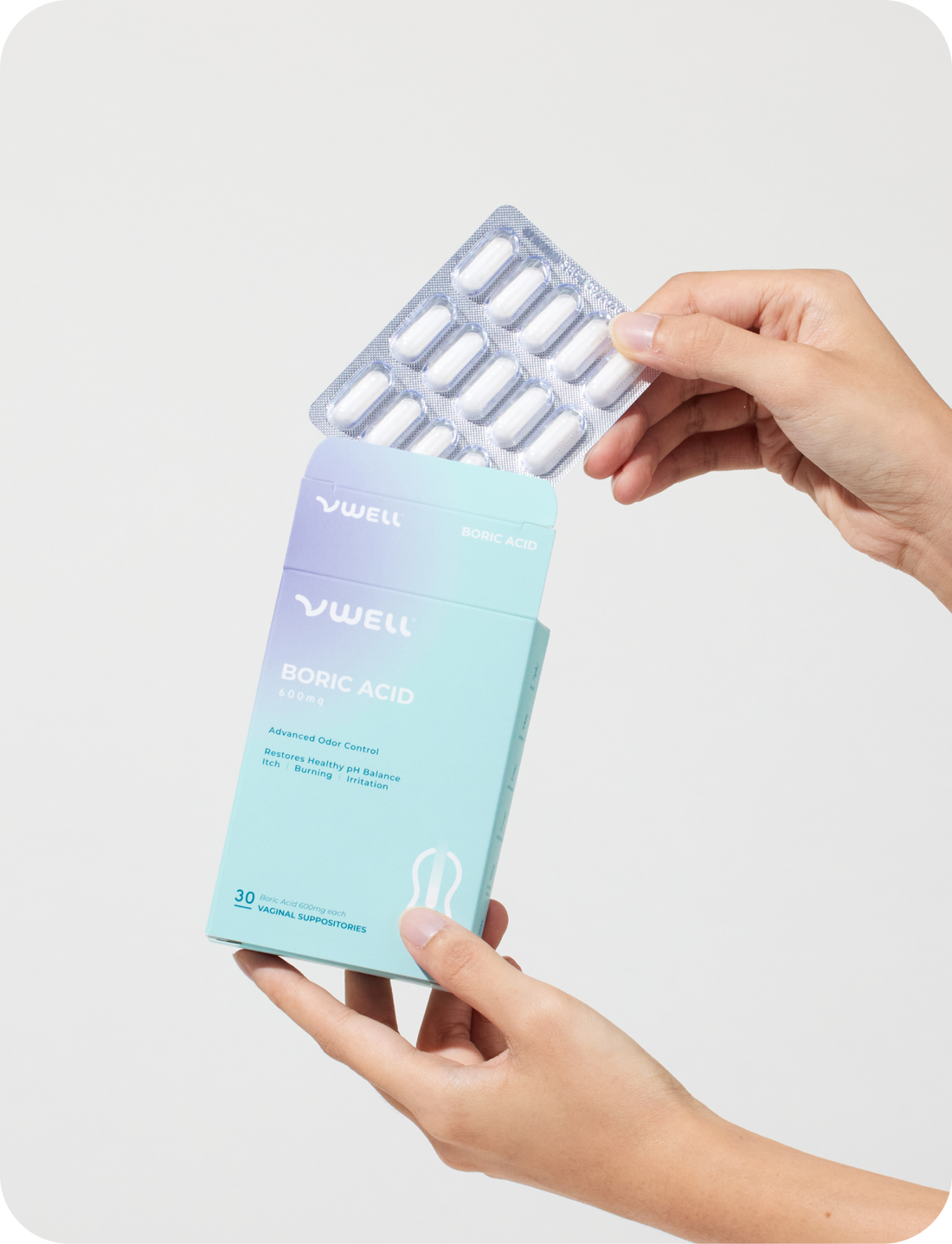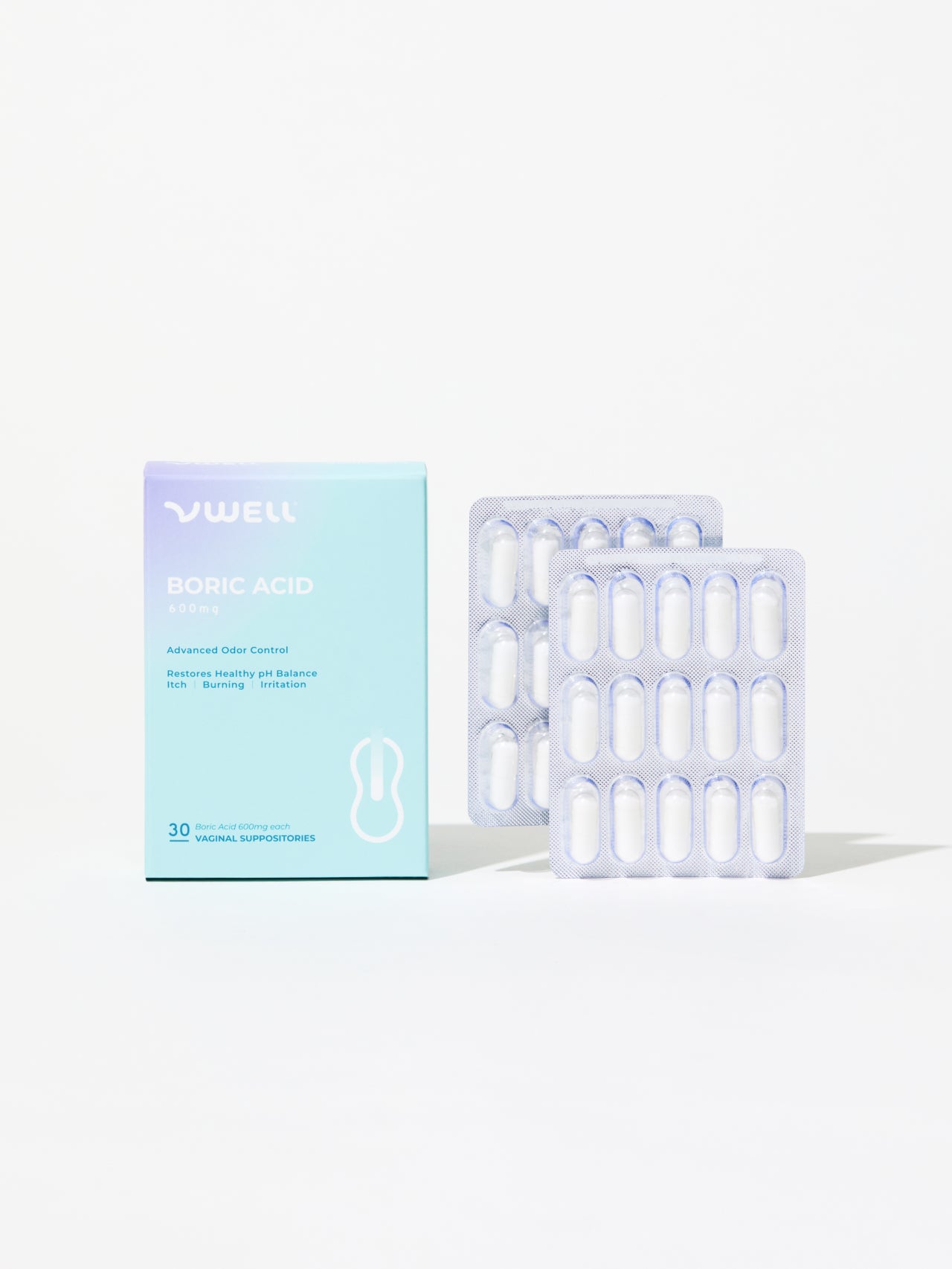Boric acid suppositories have become a popular natural solution for addressing common vaginal issues. When it comes to intimate health, many women seek natural remedies that are both effective and safe. In this article, we will explore what boric acid suppositories are, their uses, benefits, and side effects to provide you with a comprehensive understanding of this natural remedy.
Table of Contents
-
Understanding Boric Acid
-
Boric Acid Suppositories: What Are They?
-
Benefits of Using Boric Acid Suppositories
-
How to Use Boric Acid Suppositories?
-
Conclusion
Understanding Boric Acid
Boric acid is a natural compound with antiseptic and antifungal properties. A white powder, it’s used in various applications, including as an insecticide, preservative, and flame retardant. Thanks to its mild acidity, it’s also used in medicine to restore balance in disrupted microbiomes within the body, such as the case of the vagina.
Boric Acid Suppositories: What Are They?
Boric acid suppositories are small, capsule-shaped or pill-like medications. Once inserted in the vagina, they dissolve and release boric acid into the vaginal walls to treat various gynecological conditions. They are particularly effective against yeast (a type of fungus) infections, relieving symptoms such as itching and burning. Boric acid vaginal suppositories also help balance vaginal pH and prevent odor and discharge.
Benefits of Using Boric Acid Suppositories
Boric acid vaginal suppositories work well for women dealing with persistent vaginal infections or frequent infections. Here are some benefits of boric acid suppositories.
Healthy Bacterial Balance Promotion
Boric acid suppositories can help remedy vaginal infections and restore vaginal bacterial flora. The most common types of vaginal infections include bacterial vaginosis (BV) and yeast infections. They occur when bacteria and yeast that naturally live in your vagina overgrow, leading to an imbalance.
Boric acid acts as a potent antiviral and antifungal agent in the body, reducing the overgrowth of harmful bacteria or fungi and bringing the vaginal pH balance back to its normal state.
Vaginal Discomfort Relief
Boric acid suppositories can alleviate common symptoms of vaginal infections, including itching, burning, unusual discharge, and unpleasant odors. They help nourish the delicate balance of good bacteria in the vagina, supporting a healthy vaginal environment. Given the direct relationship between vaginal health and sexual wellness, boric acid suppositories can also help address factors causing frustration and discomfort during intimate moments.
Natural Vaginal Health Support
Boric acid suppositories offer a non-toxic approach to addressing vaginal health concerns. Many women choose boric acid suppositories not only for symptom relief but also as a proactive measure to maintain optimal vaginal health. By providing an alternative to antibiotics, they appeal to women who prefer natural remedies or have concerns about antibiotic resistance. These suppositories can be used intermittently or as directed by a healthcare provider to help prevent recurrent infections.
User-Friendly & Skin-Safe
Boric acid suppositories are user-friendly and gentle on the skin. Whether you prefer using an applicator or your fingers, inserting the suppository is quick and painless, making it a convenient solution for women who value a hassle-free approach to their vaginal health. These suppositories are also available over the counter at most drugstores for easy accessibility.
Furthermore, boric acid's skin-friendly nature ensures that it can be used safely without causing irritation or discomfort. This makes it an excellent choice for women with sensitive skin or allergies who want to maintain vaginal health without experiencing uncomfortable side effects like dryness or irritation.
How to Use Boric Acid Suppositories?
Using boric acid suppositories correctly is crucial for their effectiveness and your safety. Here's a general guideline on how to use boric acid suppositories:
- Wash Your Hands: Wash your hands thoroughly with soap and water every time you insert boric acid suppositories and after use.
- Find a Comfortable Position: Stand with one foot on a stool, lie on your back with your knees bent, or pick any comfortable position that works best for you.
- Insert the Suppository: Using your fingers or an applicator, gently insert the suppository into your vagina as far as comfortable.
- Lie Down: Sit or lie still for 10 to 15 minutes after inserting the suppository. This allows time for the suppository to dissolve in the body.
- Follow Recommended Dosage: Always follow the recommended dosage provided by your physician or the product's instructions. It's typically used once daily at bedtime for a specified number of days.
- Wear a Pad (optional): To catch any discharge that may occur, you can wear a pad, but it's not necessary.
- Be Consistent: Use boric acid suppositories consistently as directed, even if you start to feel better before completing the treatment course.
- Maintain Vaginal Hygiene: Clean your vaginal area with warm water and mild soap before and after each use, ensuring thorough drying. Avoid douching or using additional treatments alongside boric acid suppositories, as they may affect their effectiveness or irritate.
- Avoid Sexual Activity: It's generally recommended to avoid sexual intercourse during the treatment period since boric acid suppositories can alter vaginal pH, which may not be safe for your partner.
- Store Securely: Always store boric acid capsules and suppositories in a cool, dry place, and ensure they are kept out of the reach of children.
Please remember to consult with a healthcare provider before using boric acid suppositories, especially if you're pregnant or have underlying medical conditions. They’ll be able to provide personalized guidance and ensure that boric acid suppositories are the right choice for your situation.
If you experience recurrent yeast infections, it's advisable to schedule an appointment with a healthcare professional or OB/GYN to identify the root cause. Your women’s health provider can screen you for candida overgrowth, as well as similar conditions such as sexually transmitted infections (STIs) and sexually transmitted diseases (STDs), and offer alternative treatment options.
Conclusion
Boric acid suppositories have gained recognition as a natural and effective remedy for addressing vaginal infections and discomfort. If you're interested in trying boric acid suppositories, consider VWELL Boric Acid Vaginal Suppositories — a suppository that has been clinically studied and recommended by doctors. Most users experience relief in days rather than weeks, helping maintain healthy yeast and pH levels.
Your intimate health is important, and VWELL Boric Acid Vaginal Suppositories can be a safe and natural choice to support it.
FAQs
1. What side effects can I expect from this medication?
While boric acid suppositories are generally considered safe when used as directed, it's essential to exercise caution and consult with a healthcare professional when experiencing the following:
- Irritation: In some cases, boric acid may cause mild irritation or burning when initially inserted. If irritation persists or worsens, discontinue use and consult a healthcare provider.
- Allergies: Avoid using these suppositories if you’ve experienced allergic reactions like skin rashes, itching, or hives.
- Vaginal Discharge: While it's normal to experience some discharge after using them, abundant or persistent discharge shouldn’t happen.
Other side effects that don’t usually require medical attention may occur — report to your doctor or healthcare professional if they continue or are bothersome.
2. What should I tell my healthcare provider before taking this medication?
When discussing a new medication with your healthcare professional, it's important to provide them with comprehensive information. Here's a list of things you should consider sharing:
- Medical History: Share your medical history, including conditions like diabetes, frequent infections, HIV or AIDS, immune system problems, allergies, and past reactions to medications.
- Current Medications: List all medications you’re currently taking, including over-the-counter and supplements.
- Pregnancy or Breastfeeding: Inform about pregnancy, breastfeeding, or plans to conceive.
- Alcohol or Substance Use: Discuss any alcohol or drug use.
- Diet and Lifestyle: Mention diet, exercise, and lifestyle.
- Mental Health: Highlight any history of mental health issues.
- Dietary Restrictions: Inform about dietary restrictions.
- Medication History: Discuss prior medication experiences, including what worked and what didn't.
- Expectations and Concerns: State expectations around medication and concerns.
- Family History: Share relevant family medical history, as some conditions can be hereditary or may affect your response to the medication.




